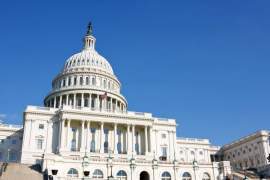
Judicial Activism and Judicial Restraint

Popular In Constitution
Purpose Of Lifetime Appointment And Pros And Cons Enumerated Powers Bicameral Legislature Background Article 3 Of The Constitution We The People 1st Amendment Who Wrote The Constitution Judicial Review Equal Protection Clause 5th Amendment 10th Amendment Three Fifths Compromise
An underlying tension in the history of the United States Supreme Court has been between the principles of judicial activism and judicial restraint. In more recent American history, opposition to judicial activism has often been voiced by politicians and political commentators leaning toward the right of the political spectrum. Among these advocates for judicial restraint is currently sitting Chief Justice John Roberts, whose appointment to the bench by the George W. Bush Administration continued the Court's rightward drift from the point of the Reagan-era Rehnquist court, which saw at least the principles of judicial activism curtailed.
A particularly fervent proponent of judicial restraint, the legal scholar Robert Bork, was submitted by the Reagan Administration to the bench in part for his strong opposition to judicial activism and was ultimately rejected for what many in the political arena objected to as his excessive stand on this issue.
Though the judicial activism/judicial restraint debate need not be essentially political, some commentators have suggested that the increasing tendency to politicize Supreme Court decisions can make judicial activism a difficult element to extricate from the judgments. Doubts have thus been voiced as to whether the judicial activism/judicial restraint debates which have frequently been raised are at a basic level truly concerned with these issues, or if they are rather made in the spirit of opposing specific uses of judicial activism, as opposed to the practice as a whole.
NEXT: Judicial Activism and Judicial Restraint





















